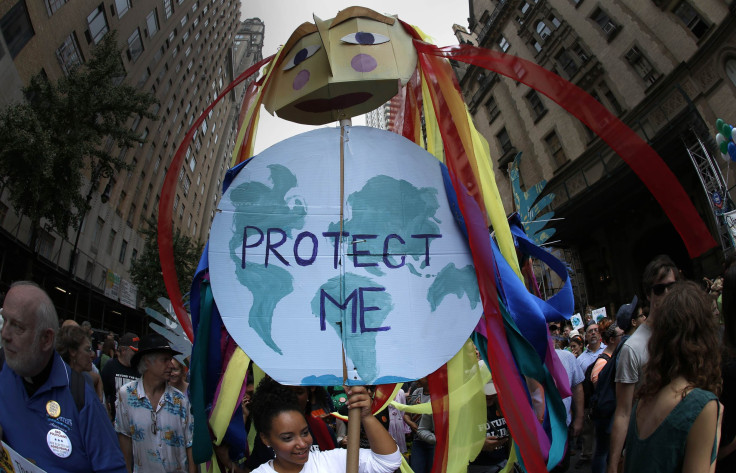Pentagon Addresses Climate Change In New Report, Calls It A 'Threat Multiplier'

Referring to climate change as a “threat multiplier,” United State Defense Secretary Chuck Hagel said Monday that “rising global temperatures…climbing sea levels, and more extreme weather events” could compound security challenges faced by the U.S. military. His remarks were included in the foreword to a report released by the Pentagon on Monday.
In the report, titled “Climate Change Adaptation Roadmap,” Hagel said that uncertainty in climate change projections cannot be an “excuse for delaying action.” The 20-page report was released as Hagel attended a conference in Peru with his counterparts from North and South America.
“A changing climate will have real impacts on our military and the way it executes its missions. The military could be called upon more often to support civil authorities, and provide humanitarian assistance and disaster relief in the face of more frequent and more intense natural disasters…Weather has always affected military operations, and as the climate changes, the way we execute operations may be altered or constrained,” Hagel said in the report.
The report warned of a direct threat posed to national security by the “seeds for instability” sown by an increase in droughts, crop failures, global poverty and food shortages caused by climate change. Such incidents could “accelerate conflict and instability detrimental to U.S. interests,” according to the report.
“The impacts of climate change may cause instability in other countries by impairing access to food and water, damaging infrastructure, spreading diseases, uprooting and displacing large numbers of people, compelling mass migration, interrupting commercial activity…These developments could undermine already fragile governments that are unable to respond effectively or challenge currently stable governments,” the report said, adding that inadequate governance could promote extremist ideologies and enable terrorism.
According to the report, there is an urgent need to identify and assess effects of climate change on the military, and consider climate as a factor while planning operations.
“Domestically, this means working across our federal and local agencies and institutions to develop a comprehensive, whole-of-government approach to a challenge that reaches across traditional portfolios and jurisdictions.”
Hagel, addressing the conference in Peru, said that militaries across the world should be “pro-active in addressing” threats presented by climate change.
“I recognize that our militaries play different roles and have different responsibilities in each of our nations,” he said. “I also recognize that climate change will have different impacts in different parts of the hemisphere. But there are many opportunities to work together.”
© Copyright IBTimes 2024. All rights reserved.






















